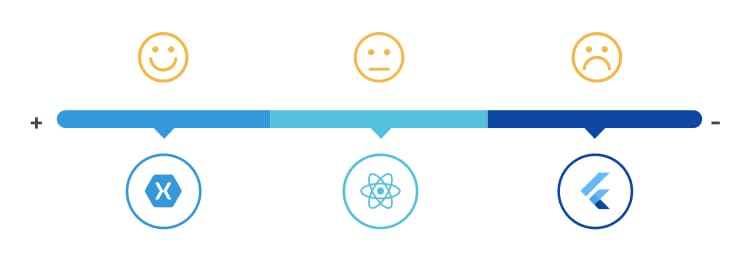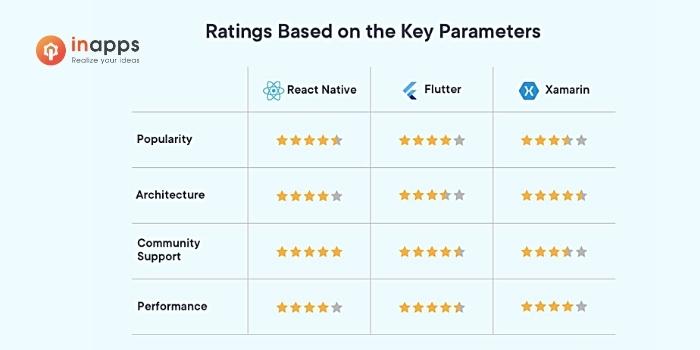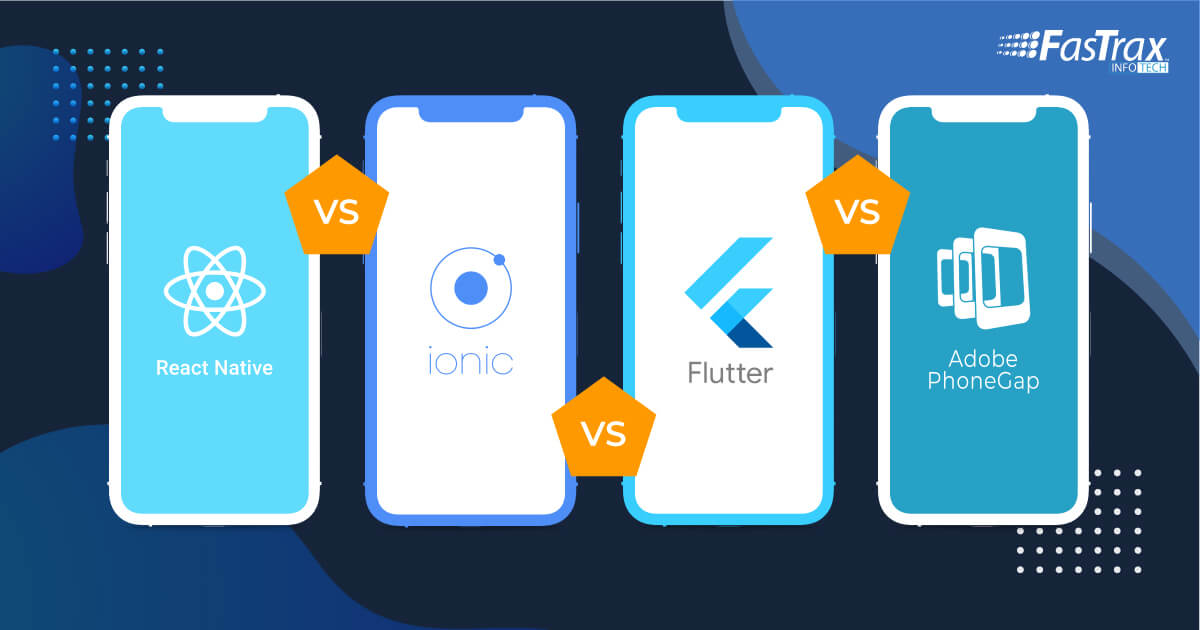
#Xamarin vs flutter vs react native code
Xamarin.Forms are ideal if sharing code is more important than having a custom user interface. This means the backend and UI code are used in tandem for all solutions.

#Xamarin vs flutter vs react native for android
In a nutshell, Xamarin is an open-source C#-based framework that allows mobile app development for Android and iOS from a single codebase using C# and XAML. It was acquired by Microsoft in 2016 and integrated into the. Released in 2011, Xamarin is the oldest in the group.

There’s a big battle brewing among these three and it’s making developers weigh the pros and cons to select the best fit for their projects. In this post, we’ll take a close look at three of the best cross-platform mobile app development frameworks in the market today: Xamarin, Flutter, and React Native. The single shared codebase will allow you to have the same look and feel across different platforms. Using the same code and a single technology stack means that instead of making two or more versions of a mobile app, each written with the native language for each platform, developers can write the code once and then use it on several platforms right away. It allows developers to write a piece of code that works seamlessly on multiple platforms. The solution to this pitfall is cross-platform mobile app development. The reason behind this is that the same code needs to be written twice. However, if we take into account how the apps are designed and built, one thing is for certain: the development process is expensive and time-consuming. Both Android and iOS apps are developed to deliver the best possible performance. The former is developed using Java and Kotlin while the latter uses Swift and Objective-C.

When it comes to mobile app development, there are two kinds of applications: Android and iOS.


 0 kommentar(er)
0 kommentar(er)
